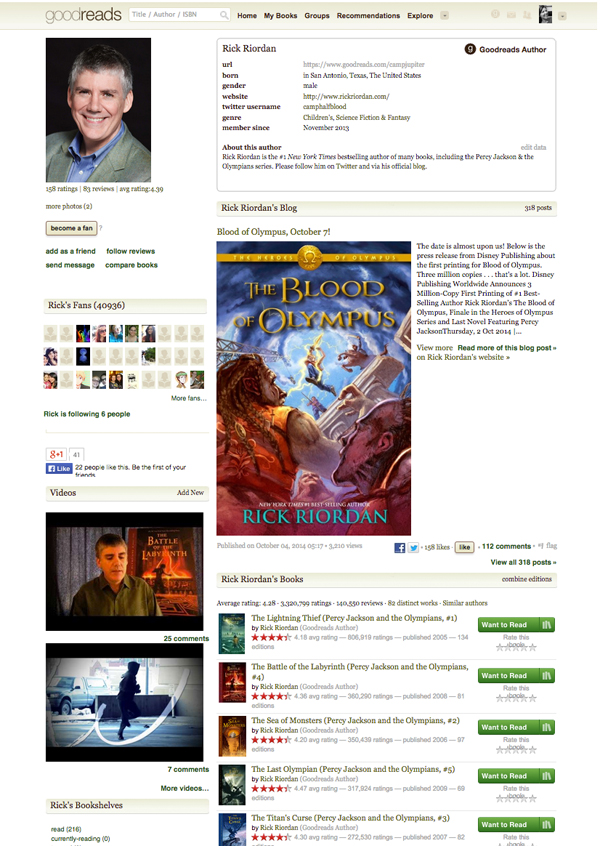 Keeping a blog going with good content isn’t easy. Even if you keep your editorial calendar up to date (ahem!) there are always times when your priorities are elsewhere, you know you’ve got a big job coming up or you just need a break.
Keeping a blog going with good content isn’t easy. Even if you keep your editorial calendar up to date (ahem!) there are always times when your priorities are elsewhere, you know you’ve got a big job coming up or you just need a break.
This is one reason why it’s worth having others post to your blog. I don’t mean you have to give them access to the Dashboard (although if your blog turns into a team effort, it’s easy enough to do that while still maintaining control).
It’s more a question of receiving someone else’s material and posting it up, with an introduction from yourself. Occasional guest bloggers will usually do this for a byline and links to their blog and social profiles.
How to find guest bloggers
1) A personal invitation is a good approach. Start with other writer friends you know, whose style you like and who you think would have something to say of interest to your blog readers. They don’t have to be bloggers themselves, but they should have something new to offer – perhaps a niche expertise or a different background to you.
2) Target your best commenters. If there is someone who comments regularly on your blog, and has interesting opinions, you could ask them if they’d like to write a guest post expanding on something they’ve written.
3) Go through your social contacts. I’ll bet there are people you interact with on Twitter who would make great guest bloggers.
3) Don’t just limit yourself to writers. What related topics might your readers interested in? What about a post about book cover art, or the historical period you write about, or a popular library or research facility? There will be specialists in all these areas who could write something fascinating and different. Think about other media. If you rarely post audio or video, for example, there might be a guest blogger who could do that, providing something new and fresh for your readers.
Agreeing the terms
Be professional and organised – when someone agrees to write a guest post, make sure you’ve established what’s expected on both sides. Are you offering byline & links plus exposure to your audience, or some other form of compensation? Are they providing a copy of a book or other gift for you to run a prize draw for readers?
Provide a deadline for receipt of copy, a preferred word count, and either establish a topic up front or let them know they have a free rein. Do you want them to provide images to go with the post? If so, what size should they be, and do you also require captions?
When the post goes live
Are guest bloggers expected to monitor and respond to comments for a day or two after the post goes live? If your blog is busy and receives lots of comments, be sure to ask them to. One of the benefits of having guest bloggers is that it takes some of the workload off you, but if you have to spend two hours fielding comments that kind of defeats it.
Make sure you promote the post in the normal way and publicly praise/thank your guest for their piece. Are guest bloggers expected to share the blog post with their social networks, or promote it on their blogs? Again, one of the reasons for inviting guests onto your blog is to increase its exposure to new audiences – namely the guest blogger’s own social networks. So worth asking, although it wouldn’t be good to insist. It’s unlikely someone would not want to do this, but they may need nudging.
These are just a few guidelines to get started with guest bloggers. The ‘deal’ you strike is more likely to be relaxed and friendly than formal. However, as your blog grows in popularity you may start getting actively approached by people wanting to guest on your blog, and that’s when a guest blogging policy is a good thing to have. Start by creating a ‘Write for Us’ page or a paragraph on your ‘About’ page that sets out the terms for potential guest bloggers.
If you find guest blogging works, and some guests become regular writers, you will almost certainly need to start compensating them. But there are ways you can up their profiles before it comes to that – such as adding a headshot to their posts, an Author Box linking to their profile, and having a ‘Contributors’ page or sidebar feature where they are listed. Many large multi-author blogs started this way.
And don’t forget you’ll probably find yourself guesting on other blogs too. Guest blogging is sociable and rewarding. Have fun with it.


